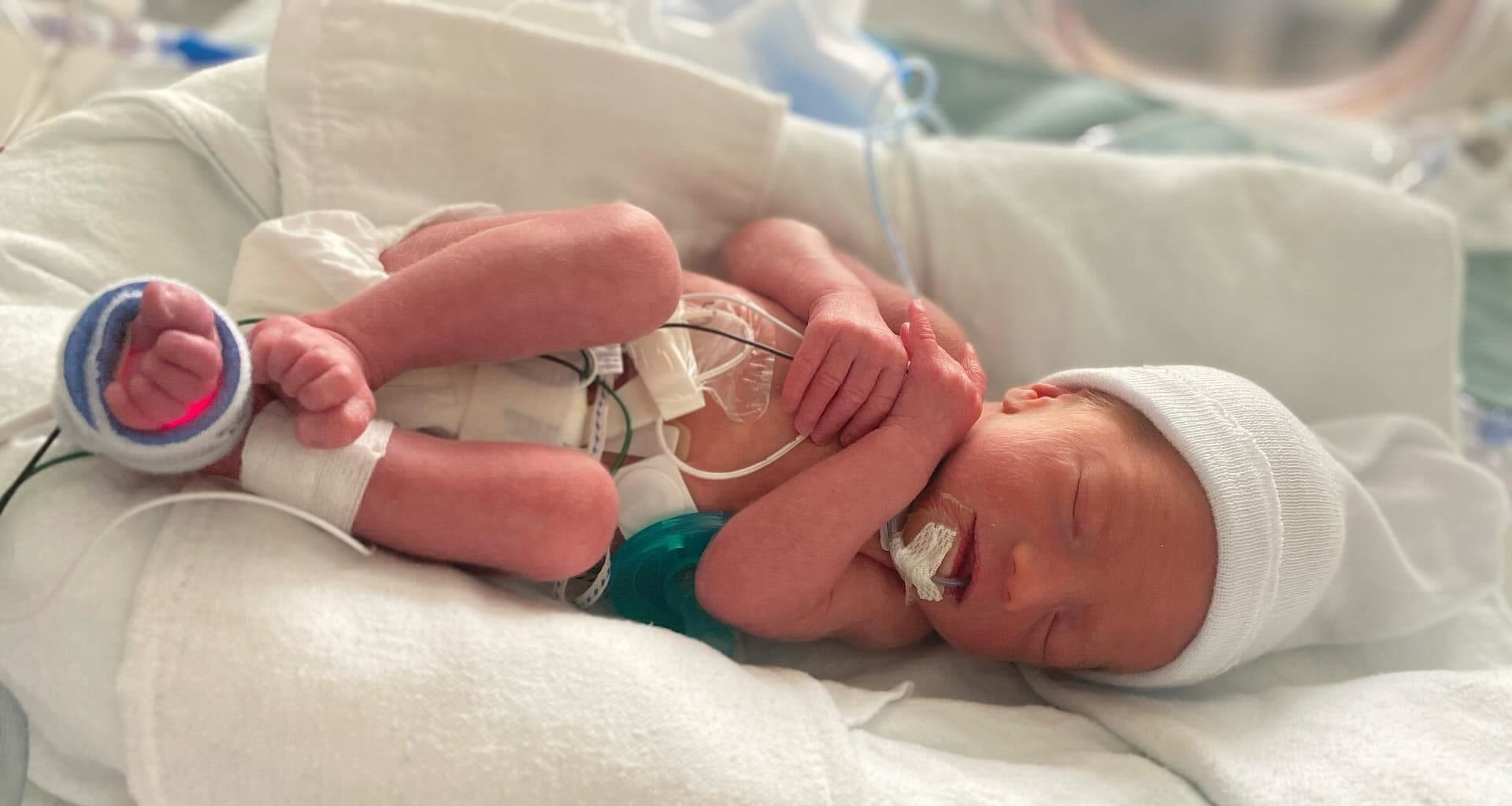
When Kelly Laing was 30 weeks pregnant, doctors at BC Women’s Hospital + Health Centre discovered her baby likely had esophageal atresia, a disorder in which a baby’s esophagus, the pathway from the mouth to the stomach, does not properly form during pregnancy. Kelly delivered baby Blakely at 35 weeks, and doctors confirmed Blakely had long-gap esophageal atresia, where the esophagus is disconnected from the stomach by a relatively long distance. This meant baby Blakely would need to spend an extended period in the BC Women’s Neonatal Intensive Care Unit (NICU), growing stronger before the gap could be repaired surgically.
The next four months were exhausting and overwhelming for Kelly and her husband, Mike, but the staff in the BC Women’s NICU “were so patient with us and would answer our questions clearly so it all made sense to us. Even when they had to give us difficult news, they shared information calmly and patiently with a smile,” said Kelly. Like all BC Women’s NICU parents, Kelly and Mike were involved in the daily rounds with the care team and at the forefront of decision making for their baby.
Blakely’s surgery was complicated, but many doctors and specialists were there throughout to ensure she was in the best hands possible. “She was a tiny baby in a little bed with a respirator tube, a big ventilator, a chest tube attached to another machine, a big bank of IVs. For every piece of equipment, there was a team of people dedicated to Blakely’s care,” explained Kelly.
Today, the delightful toddler is growing and thriving, thanks to the amazing care and sophisticated technology that were there for her when she was born. “We want to say a huge thank you,” said Kelly. “This truly was lifesaving, and none of it would have been possible without BC Women’s and all those who support the NICU program.”
